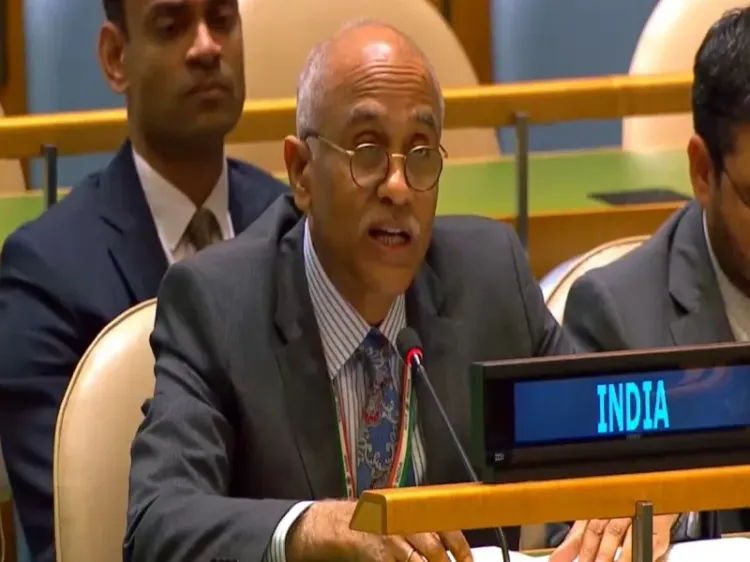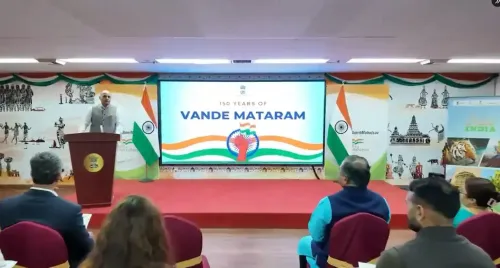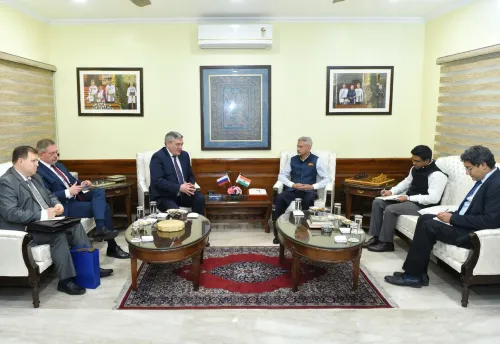Why Did India Abstain on the UNGA Afghanistan Resolution?

Synopsis
Key Takeaways
- India abstained from the UNGA resolution on Afghanistan.
- Call for preventing terrorist exploitation of Afghan territory.
- Importance of cooperation among the international community.
- Focus on humanitarian assistance and capacity building.
- UN resolution urges Taliban to end oppressive policies against women.
United Nations, July 8 (NationPress) In a significant move, India chose to abstain from a General Assembly resolution concerning Afghanistan. The nation urged the global community to take decisive actions to ensure that Lashkar-e-Taiba (LeT) and Jaish-e-Mohammed (JeM), along with their backers, do not exploit the territory of Afghanistan.
While detailing the reasons for this abstention on Monday, India’s Permanent Representative, P. Harish, stated: “It is imperative for the international community to align its efforts to prevent designated entities and individuals by the UN Security Council, including Al Qaeda and their affiliates, ISIL and its associates, along with Lashkar-e-Taiba and Jaish-e-Mohammed, from leveraging Afghan territory for acts of terrorism.”
He highlighted that Afghanistan had strongly condemned the terrorist attack in Pahalgam that occurred in April.
This assault was executed by The Resistance Front, which is linked to the Pakistan-based Lashkar-e-Taiba.
The resolution, which urged the Taliban to cease its oppressive practices, particularly against women, was passed with a total of 116 votes.
The United States and Israel opposed it, while 12 nations chose to abstain.
Harish mentioned that India believes the policy concerning Afghanistan should utilize both incentives and disincentives, which should be reflected in the resolution.
He pointed out that a strategy solely based on punitive measures is unlikely to be effective.
“A status quo approach, devoid of innovative and targeted actions, is also unlikely to yield the desired results for the Afghan populace,” he remarked.
He also referenced diplomatic engagements with Afghanistan, despite India not recognizing its current government.
External Affairs Minister S. Jaishankar had a discussion with Acting Afghan Foreign Minister Amir Khan Muttaqi in May, following a meeting in Dubai where regional and bilateral topics were addressed.
“We appreciate the Afghan government's strong denunciation of the Pahalgam terrorist attack on April 22, 2025,” Harish noted.
He further stated, “India’s immediate goals in Afghanistan revolve around providing humanitarian aid and executing capacity-building programs for the Afghan populace.”
He highlighted the food, medical, educational, and other support India has been offering to Afghanistan.
The resolution was sponsored by Germany, and Permanent Representative Antje Leendertse expressed her nation’s grave concerns regarding the human rights situation in Afghanistan, particularly for women and girls.
“The restrictions imposed by the Taliban against women and girls represent a near-total eradication of their rights,” she said.
Simultaneously, she acknowledged, “Germany recognizes that engagement with the Taliban is essential, and we will persist in our contributions to the UN-led Doha Process.”
The Doha Process comprises a series of meetings in Doha facilitated by the UN, with several nations, including India, attempting to encourage the Taliban to adhere to international norms and normalize relations.
Regarding the US's vote against the resolution, diplomat Jonathan Shrier remarked: “We cannot continue to support the Taliban while simultaneously insisting they fulfill their international obligations and respect Afghanistan’s commitments.”
“The current method of providing humanitarian aid to the Afghan people is not sustainable and will inevitably fail to achieve the intended outcomes,” he asserted.









